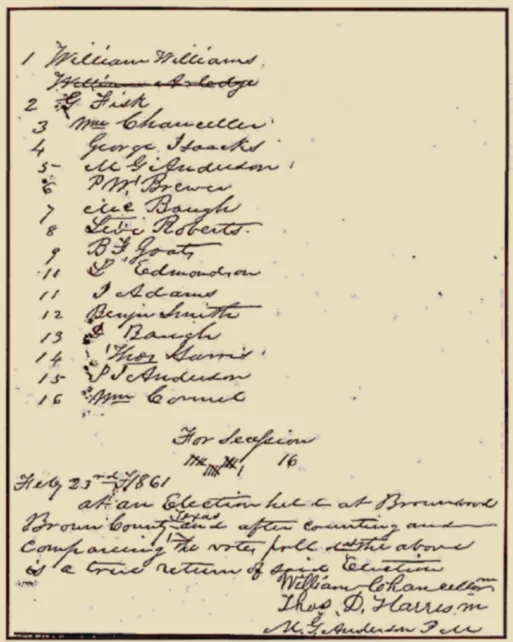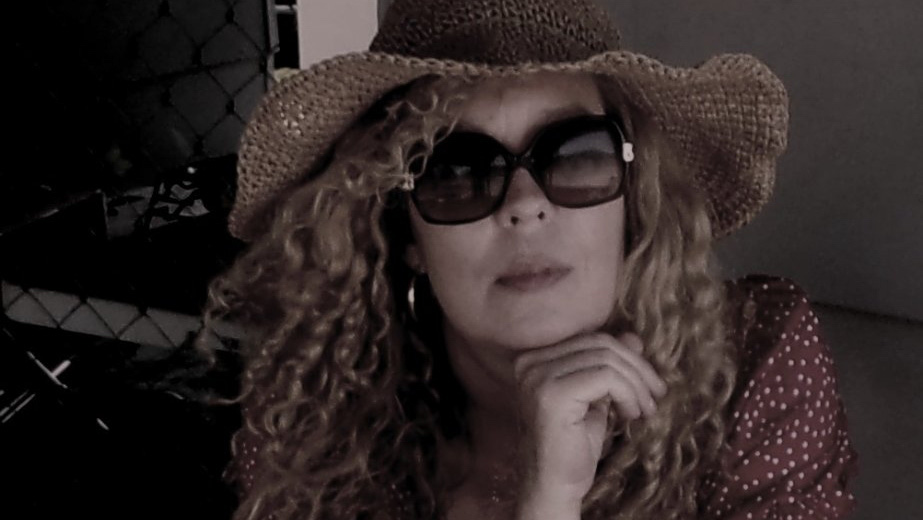
After watching the most emotional and perhaps the most influential election of my lifetime last week, I learned all sorts of new things about how our system works. Even at my age, I still don’t know it all!. Our elections are shockingly complex, employing armies of lawyers, journalists and talking heads every November to shake it out, or even, at times, to obscure truth in order to promote a certain view or candidate. Early day elections in the US were a lot less complicated. It didn’t take weeks to count ballots and release the totals, I guess because they didn’t have the super efficient help of machines. The first election in Brown County was, nonetheless, apparently illegal.
The initial Brown County election was held in the log home of the earliest resident of the area, Welcome W. Chandler. Chandler settled at the future location of Brownwood with his family, along the east side of Pecan Bayou, in the summer of 1856. James C. White recounts the election difficulty in his book, The Promised Land – A History of Brown County, Texas. “The first election held in Brown County, which had been created by legislative action August 27, 1856, was held late in 1857. This election later was found to be illegal, and the first legal election was held late in May 1858, for the election of the first officers. A third election was held August 3, 1858, ratifying the May election.”
An article from the Brownwood Bulletin, February 1922, explains a few more details: “On August 27, 1854, Brown County was created by act of legislature. However, the organization was not completed until 1858 because there were not enough people here. The first election was held at that time and the following officers were elected: Welcome W. Chandler, county judge; M. G. Anderson, county clerk; W. F. Brown, district clerk; B. J. Marshall, treasurer.”
“The first county courthouse was built on W. W. Chandler’s property in 1860. It was a two-room log house floored with boards sawed from pecan trees. Mr. Chandler and Judge Greenleaf Fisk supervised the building of the house. It was in this building that the first school was taught. Professor J. J. Gallop was the teacher and also the first lawyer in this section of the State,” the article continued.
I am guessing, but imagine the problem there did not involve any actual corruption. Seems more like a case of a lack of understanding regarding procedures, in other words, I suppose, a lack of lawyers. I can’t argue lawyers occasionally do some good in the world.
In the very earliest elections on the Texas frontier, there was nothing like a campaign. They ran well enough without any outrageous amounts of donor money, frequent speech making or 10,000 different lawsuits. It sounds so simple and civilized, maybe that’s because I wasn’t there, but it looks like if something went wrong in an election, the people fixed the problem and moved on with business. Maybe earlier generations trusted each other more than we do now. I suppose they had to because life on the frontier was a dangerous business. Maybe we could do with fewer ‘experts’ in our elections, and fewer accusations all the way around. Seemed to work pretty well back then.
***
Diane Adams is a local journalist whose columns appear Thursdays on BrownwoodNews.com. Comments regarding her columns can be emailed to [email protected].
